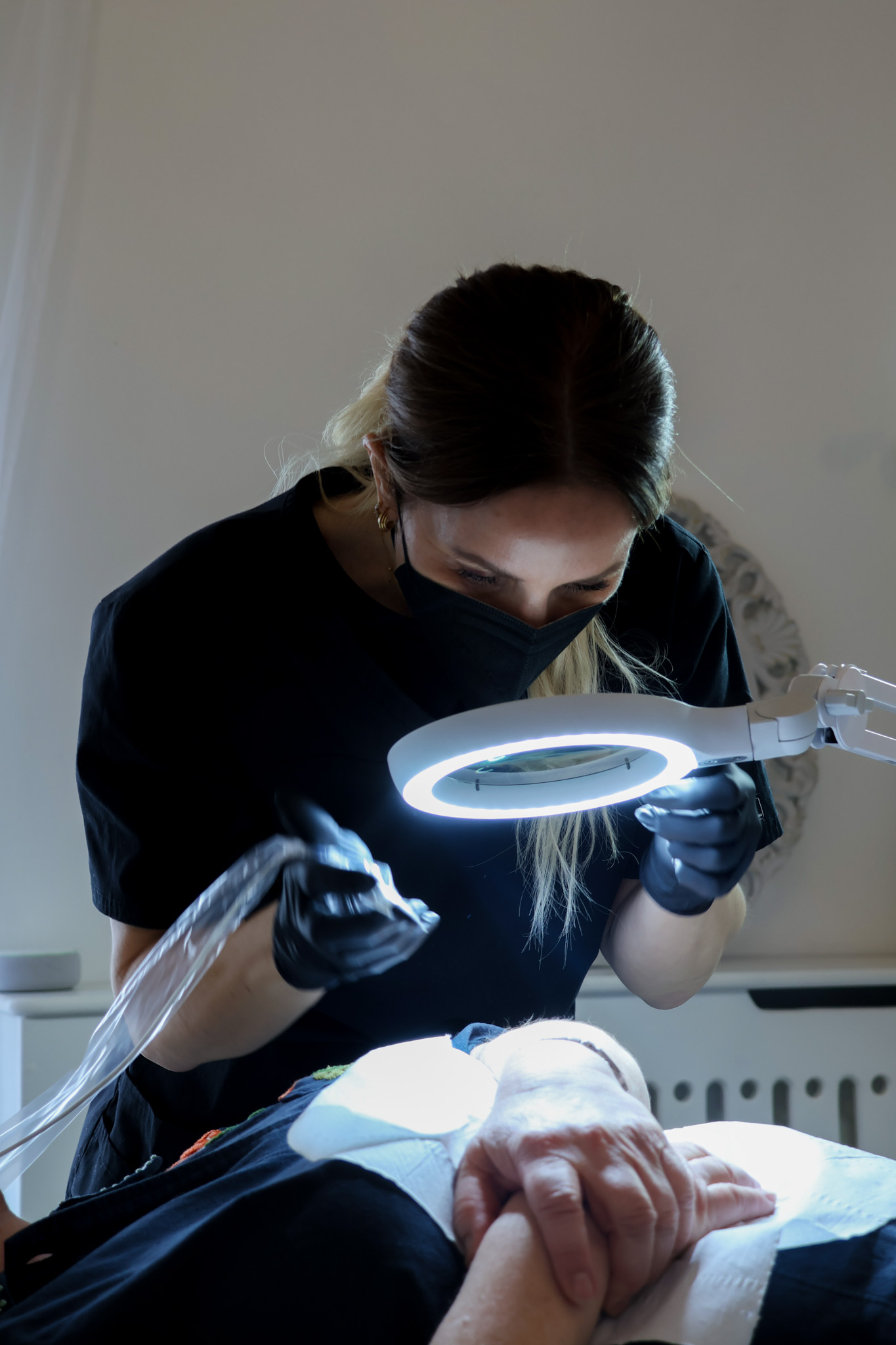The Endocrine System & How It Affects The Skin
The endocrine system is a network of glands that produce and release hormones into the bloodstream to regulate various functions in the body. These hormones influence metabolism, growth, mood, and many other processes, including the health and appearance of the skin.
How does the endocrine system affect the skin?
1. Hormonal Regulation of Skin Functions
- Sebum Production: Hormones, particularly androgens (male hormones like testosterone), stimulate the sebaceous (oil) glands in the skin. Increased androgen levels can lead to excessive sebum production, contributing to acne or oily skin.
- Skin Growth and Repair: Growth hormone and thyroid hormones play roles in skin cell turnover and wound healing. They regulate the production of collagen and elastin, essential for maintaining skin elasticity and firmness. When a client has a thyroid condition then the doctor must confirm they are happy for that client to have diathermy and this is down to healing.
- Melanin Production: Melanocyte-stimulating hormone (MSH) and other hormones influence the production of melanin, the pigment responsible for skin color. Hormonal changes can lead to conditions like melasma (dark patches on the skin), especially during pregnancy or with birth control use. The level of pigment in the skin can also affect the pigmentation following a diathermy treatment.
2. Impact of Thyroid Hormones
- Hypothyroidism (Low Thyroid Hormone): Can lead to dry, flaky skin, puffiness, and a dull complexion. Low thyroid levels slow down skin cell turnover, causing thickening of the skin and hair loss.
- Hyperthyroidism (High Thyroid Hormone): May cause the skin to become thin, moist, and more prone to bruising. It can also lead to warm, reddened skin and an increase in sweating.
3. Androgens and Acne
- Increased levels of androgens (common during puberty, menstruation, pregnancy, or with conditions like PCOS) stimulate sebaceous glands, leading to clogged pores and the development of acne, especially on the face, back, and chest.
4. Cortisol and Stress
- Cortisol, the body’s stress hormone, can lead to skin thinning, acne, and increased susceptibility to infections when levels are chronically elevated. Stress can also disrupt the skin’s ability to repair itself and contribute to inflammatory skin conditions like eczema or psoriasis.
5. Estrogen and Skin Health
- Estrogen plays a vital role in maintaining skin’s thickness, moisture retention, and elasticity. During periods of low estrogen (e.g., menopause), the skin may become thinner, drier, and more prone to wrinkles. Estrogen also has a protective effect on collagen production.
- During pregnancy, increased estrogen levels can lead to glowing skin or trigger pigmentation changes (e.g., melasma).
6. Insulin and Skin Aging
- Insulin resistance, a condition where the body doesn’t respond properly to insulin, is linked to premature skin aging and can contribute to the development of acne and rosacea.
- Elevated insulin levels can promote the production of androgens and inflammation, both of which can negatively affect skin health.
7. Adrenal Glands and Skin Manifestations
- The adrenal glands produce cortisol, aldosterone, and adrenaline. An overproduction of cortisol (e.g., in Cushing’s syndrome) can lead to thin, fragile skin, easy bruising, and slow wound healing.
- Aldosterone helps regulate fluid balance, and an imbalance can lead to skin edema (swelling) or dryness.
8. Impact of Pregnancy
- Pregnancy involves significant hormonal shifts that can lead to changes in skin appearance, such as hyperpigmentation (e.g., linea nigra, darkening of the nipples), acne, or stretch marks due to changes in collagen production and skin elasticity. I will not treat clients during pregnancy.
- The increase in progesterone and estrogen during pregnancy can also cause dry skin or increased oiliness, depending on the individual.
9. PCOS and Skin Effects
- Polycystic ovary syndrome (PCOS) is associated with elevated levels of androgens, leading to hirsutism (excess hair growth), acne, and seborrheic dermatitis (flaky, greasy skin).
10. Hormonal Therapy (e.g., Birth Control, HRT)
- Oral contraceptives or hormone replacement therapy (HRT) can alter skin characteristics. Some birth control pills with high estrogen may reduce acne and improve skin tone, while others with higher androgenic properties may exacerbate acne.
- HRT, especially during menopause, can help restore estrogen levels, improving skin moisture and elasticity.
What does all the above tell us?
Hormones are crucial for regulating skin functions, and imbalances in the endocrine system can manifest in a variety of skin conditions, such as acne, dryness, pigmentation changes, and aging signs. The skin often reflects changes in hormones due to fluctuations in thyroid function, adrenal output, and reproductive hormones like estrogen, progesterone, and testosterone. My consultation aims to discouver why you have developed certain blemishes and what you can do outside of treatment to support your skin health and avoid certain blemished going forward.
To book your blemish consultation now or discuss The Endocrine System & How It Affects The Skin in either my Colchester or Chelmsford clinic click here.

